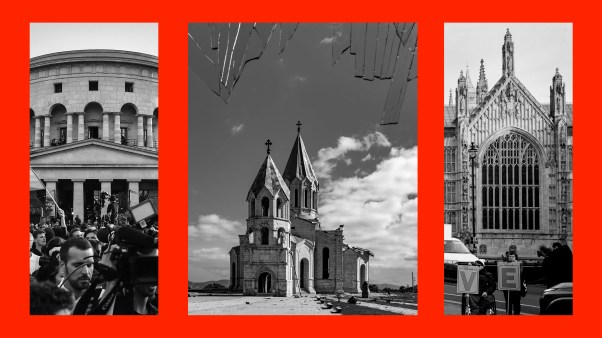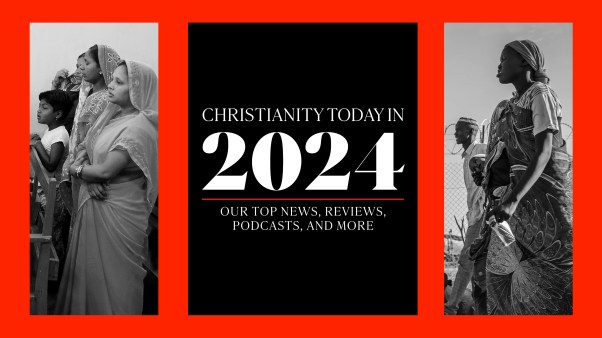In June, 2020, Dan Cathy, the CEO of Chick-fil-A; Louie Giglio, pastor of Passion City Church; and Lecrae, a platinum-selling recording artist, gathered to discuss the tortuous death of George Floyd, choked by officer Derek Chauvin, who put his knee on the unarmed man’s neck for 8 minutes and 46 seconds. They gathered to talk about Ahmaud Arbery, who was chased down by armed residents, surrounded, and shot to death in Glynn County, Georgia, on February 23. A potential cover-up protected the murderers.
After Rayshard Brooks was killed by police in the drive-thru of an Atlanta Wendy’s, Cathy, Giglio, and Lecrae sat together to talk about racism and the church’s role. Over 60 percent of white Christians think pastors should not talk about race. Forty percent believe race and immigration should never even be a topic in church. Meanwhile, an equal number of black folks say that pastors and churches should. This shows that racial reconciliation conferences do not work. Before reconciliation can be introduced, we have to embrace the truth.
In the aftermath of terrible state violence in other countries, truth and reconciliation commissions convened to bring reparative, restorative, or punitive justice. This happened in Rwanda after the 1994 genocide, in South Africa after the fall of apartheid, and after what is termed the “Dirty War” in Argentina. This has never happened in the United States.
Christians of every color should have a firm, biblical grasp of the necessity for individual and collective confession and repentance before forgiveness and reconciliation can occur.
These secular governments understand a fundamental reality that should be familiar to followers of Jesus: We confess and God forgives. Truth and acknowledgement come before reconciliation. Christians of every color should have a firm, biblical grasp of the necessity for individual and collective confession and repentance before forgiveness and reconciliation can occur.
When we trespass, we must wrestle with the gravity of personal and corporate sins—including sinful actions we were not even aware of, injustices we benefit from, and results that we did not intend. We must lament, confess, and repent (Acts 2:38; 3:19). Only then are we truly reconciled to God through Christ Jesus and sent, equipped, to be ministers of reconciliation to others (2 Cor. 5:18).
In well-resourced, often white evangelical churches, entire ministries and parachurch organizations disciple people out of patterns of sin, struggles with alcoholism, and drug addiction. Ministries serve those in need while reinforcing their personal dignity and value. But such compassion toward sinners and the needy gets lost once the topic turns to white supremacy.
White Christians and those pursuing whiteness often become defensive and angry when asked what Jesus would say about the race-, class-, gender- and ideologically based hierarchy evident in our world. The inability and unwillingness to acknowledge and confess what exists and repent creates conditions for violence and oppression against people of color. Our country and its churches are socialized to not critique white supremacy.
The church has been instrumental in the creation, defense, and propagation of the myth of whiteness under the reign of White Jesus. Jemar Tisby, author of the best-selling The Color of Compromise: The Truth About the American Church’s Complicity in Racism, lays out clear and searing connections between the enslavement of Africans and leaders of white congregations. “Many of the men who conducted night rides” that terrorized black communities with burned crosses and lynchings were the very same men who “ascended to pulpits to preach on Sunday.”
Soong Chan-Rah and Mark Charles in Unsettling Truths: The Ongoing, Dehumanizing Legacy of the Doctrine of Discovery, go back further, detailing how 15th-century church edicts exalted those with lighter skin and rejected the personhood of those with darker skin. A series of Roman Catholic decrees (the Doctrine of Discovery, 1493) codified white supremacy and sanctioned genocide, rape and abuse against African and Native peoples. Theologian Willie Jennings asserted the purpose was to bring people and the planet to “maturity.”
Colonialism created a counter-faith I call White American Folk Religion (WAFR). It’s a set of beliefs and practices grounded in a race, class, gender, and ideological hierarchy that segregates and ranks all people under a light-skinned, thin-lipped, blond-haired Christ. Americans of every color and racial assignment must reckon with the current and historic reality of a country and its churches rooted in White American Folk Religion. WAFR fuels ignorance, complicity, and willing participation in the patterns of injustice that perpetuate the death and degradation of brown, black, and indigenous women and men. Yet, in this moment of racial turmoil, those entangled in WAFR believe it is their right and responsibility to speak, teach, and lead.
In our post-colonial world, and especially in the United States, Western seminaries and theology prioritize whiteness and defer to white men like Giglio and Cathy—evangelical, older, white, wealthy, well-known, well-educated, well-connected, able-bodied, and gainfully employed—and regard them as credible and trustworthy, though neither Giglio nor Cathy is an expert on American policing or the history of a racism that promotes mass incarceration and instinctively perceives black bodies as criminal in every community. Neither of them has done the inner work to decolonize and disempower their frames of WAFR reference. They were not chosen to lead this dialogue in front of cameras and congregants in a crisis because of their experience or expertise but because they fit the description of authority.
There are many leaders who could have led this dialogue with clarity, conviction, and compassion and who are already leading Christ-centered, Holy Spirit–filled movements. They were passed over in favor of these, like too many in the white church and of the world, who speak lies from the pit of hell about how slavery is a “white blessing” from their Christ in their stained glass windows.
Colonialism succeeded. Racism is pervasive—so much so that we are often unaware of the depths of our socialized sin and individual participation.
Colonialism succeeded. Racism is pervasive—so much so that we are often unaware of the depths of our socialized sin and individual participation. Giglio apologized on Instagram and asked for prayer. What he did not do was confess how his seminary training and discipleship did not prepare him to lead in this moment; that he is stepping down and stepping back to make space for the women and men of color to lead this conversation; and that he will take their direction. Often, white Christians are not willing to believe, let alone follow, people of color or rigorously engage in the process of detangling the Jesus of scripture from WAFR. This is what the work of decolonization looks like.
Pastors of every color in Giglio’s position must acknowledge that western theology and praxis are intertwined with WAFR and confess where they lack the personal and institutional wisdom to comprehensively resist white supremacy. Church leaders that are ill-equipped to lead and teach on issues of ethnic justice and reconciliation should confess their limitations and empower leaders of color to shepherd them and their congregants towards the Acts 2 community of true fellowship and wonder and unity and prayer (Acts 2:42–44). In the face of certain backlash, pastors must do more than denounce racism. Christians need to be discipled out of prejudice, bias, and WAFR. This begins with white pastors confessing complicity in racist systems and testifying to God’s grace and forgiveness in their own lives; then they can lead others to do the same.
How amazing it would be if pastors and leaders who benefit from the racism in their families and institutions repented for not resisting racist actions, ideology, and theology? What if pastors repented publicly for not rejecting the curse of Ham, not standing up for the Japanese during internment, or participating in white flight because people of color moved into “their” neighborhoods? What if parents asked for forgiveness from God and their children for saying, “You can marry anyone but one of them”? What if Christian families and institutions quantified their benefits from slavery and genocide of native peoples and allocated money toward financial reparation? This would be profound, powerful, and beyond significant for people of color.
White people too would be liberated from the false burden of superiority, the lie of white supremacy, and enter into the desegregated, reconciled family of God. No more statements, panel discussions, conferences, or book clubs; what we need is lament, confession, repentance, and a refusal to conform to the world’s racist patterns. Jesus prayed in John 17 that we might all be one and preview the coming “great multitude that no one could count, from every nation, tribe, people and language, standing before the throne and before the Lamb” (Rev. 7:9–17). We can experience a slice of this future on this side of heaven if, as the body of Christ, we embrace truth and reconciliation in the United States.
Jonathan Walton is the author of Twelve Lies That Hold America Captive: And the Truth That Sets Us Free. He is also an area director for InterVarsity NY/NJ focusing on spiritual formation and experiential discipleship. He is from Southern Virginia and lives in New York City.










